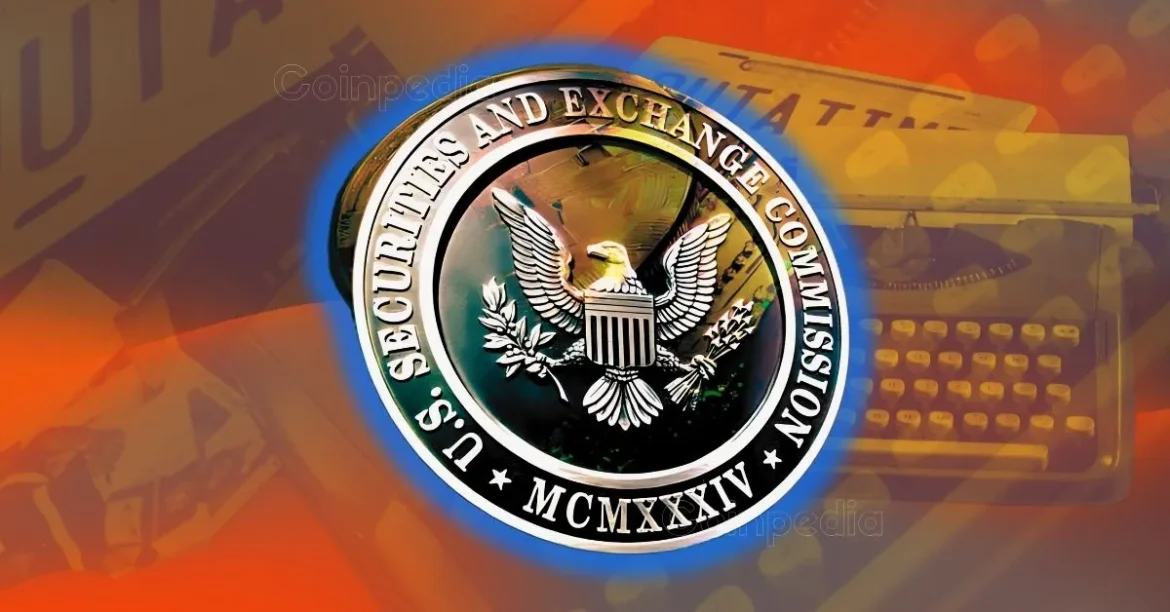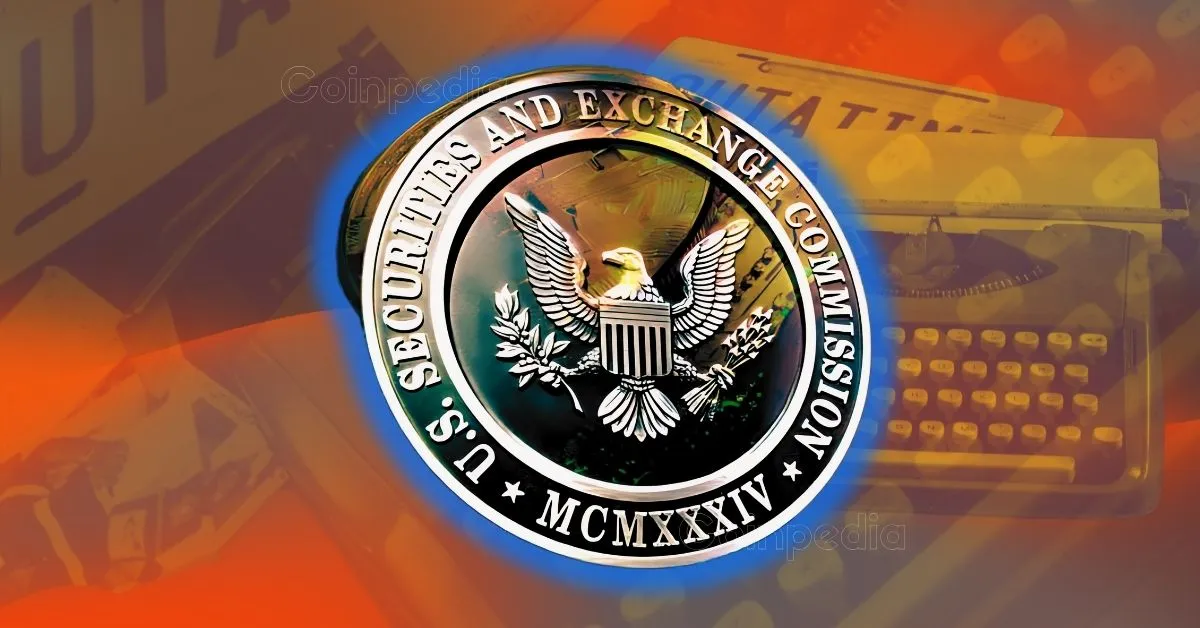The SEC’s “Crypto on the Road” Initiative: A Comprehensive Analysis
Introduction: Bridging the Gap Between Regulation and Innovation
The cryptocurrency landscape is evolving at an unprecedented pace, presenting both opportunities and challenges for regulators, investors, and entrepreneurs alike. In response to this dynamic environment, the U.S. Securities and Exchange Commission (SEC) has launched an ambitious initiative called “Crypto on the Road.” This program represents a proactive approach to understanding the unique needs of small crypto startups and shaping a regulatory framework that fosters innovation while ensuring investor protection. By engaging directly with the crypto community, the SEC aims to bridge the gap between regulatory oversight and the rapid advancements in blockchain technology.
The Genesis of “Crypto on the Road”: A Vision for Modern Regulation
The “Crypto on the Road” initiative is part of a broader vision known as “Project Crypto,” introduced by SEC Chair Paul Atkins. This project seeks to reimagine how crypto assets are regulated within the U.S., with a focus on transitioning more of the financial system “on-chain.” The goal is to create a regulatory framework that aligns with the rapid pace of digital innovation, ensuring that the U.S. remains at the forefront of technological advancements.
Commissioner Hester M. Peirce has been instrumental in shaping this initiative, recognizing the need to include voices from outside of Washington, D.C. in the policymaking process. Previous engagement efforts have often excluded smaller crypto startups, which are crucial to the ecosystem’s growth. “Crypto on the Road” aims to rectify this by bringing the conversation directly to crypto communities across the nation, ensuring that a diverse range of perspectives are considered.
The 10-City Tour: A Strategic Approach to Engagement
The “Crypto on the Road” tour is meticulously planned to cover a diverse range of geographical locations and crypto hubs within the United States. The tour begins in Berkeley, California, a renowned incubator for technological innovation, and will continue to major cities such as Boston, Dallas, Chicago, and New York. This strategic distribution ensures that the SEC can gather feedback from a wide spectrum of crypto ventures, reflecting the varied regional landscapes of the industry.
The tour is scheduled to run from August through December, providing ample time for the SEC to engage with startups, gather insights, and develop a comprehensive understanding of the challenges and opportunities within the crypto space. By visiting multiple locations, the SEC can ensure that its regulatory framework is informed by a broad and representative sample of the crypto community.
Focus on Small Crypto Startups: Addressing Unique Challenges
The SEC’s decision to focus on small crypto startups is particularly noteworthy, as these early-stage ventures often operate with limited resources and face unique challenges in navigating the complex regulatory landscape. By engaging directly with these startups, the SEC aims to gain a deeper understanding of their needs, concerns, and innovative approaches to blockchain technology.
Several key aspects of the small crypto startup experience are likely to be explored during these roundtables:
Access to Capital: Overcoming Funding Challenges
Small startups often struggle to secure funding, and regulatory uncertainty can further exacerbate this challenge. The SEC will likely explore how its regulations impact startups’ ability to attract investment and what can be done to foster a more supportive environment. By understanding the funding challenges faced by small startups, the SEC can develop policies that encourage investment in the crypto space while maintaining investor protection.
Regulatory Compliance: Simplifying the Process
Navigating the complex web of securities laws and regulations can be particularly burdensome for small startups with limited legal resources. The SEC will likely seek feedback on how to simplify the compliance process and provide clearer guidance to startups. By streamlining regulatory requirements, the SEC can help small startups focus on innovation and growth, rather than being bogged down by compliance issues.
Innovation and Experimentation: Encouraging Growth
Small startups are often at the forefront of blockchain innovation, experimenting with new technologies and business models. The SEC will likely explore how its regulations can accommodate and encourage innovation without compromising investor protection. By fostering an environment that supports experimentation, the SEC can help small startups drive the next wave of technological advancements in the crypto space.
Market Manipulation and Fraud: Mitigating Risks
While small startups are often driven by innovation, they are also vulnerable to market manipulation and fraudulent schemes. The SEC will likely address these risks and seek input on how to effectively detect and prevent such activities. By developing strategies to mitigate these risks, the SEC can help small startups operate in a safer and more secure environment.
The Crypto Task Force: Charting a New Regulatory Approach
The Crypto Task Force, leading the “Crypto on the Road” initiative, plays a pivotal role in shaping the SEC’s overall approach to crypto asset regulation. The task force collaborates with Commission staff and the public to chart a new approach to the regulation of crypto assets. Its scope encompasses a broad range of assets, including digital assets, crypto assets, cryptocurrencies, digital coins, and tokens, as well as the underlying protocols.
The Task Force’s goals are multifaceted, aiming to develop a comprehensive regulatory framework that balances innovation with investor protection. By actively enforcing existing securities laws and developing new strategies to mitigate risks, the task force seeks to create a regulatory environment that supports the growth of the crypto industry while ensuring the safety of investors.
The Potential Impact: Shaping the Future of Crypto Regulation
The “Crypto on the Road” initiative has the potential to significantly impact the future of crypto regulation in the U.S. By directly engaging with small startups and gathering feedback from a diverse range of stakeholders, the SEC can develop more informed and effective regulations. This could lead to a more supportive regulatory environment for crypto innovation, attracting investment and fostering growth.
The success of “Crypto on the Road” hinges on several factors, including active participation from small crypto startups, open dialogue between the SEC and the crypto community, and a genuine commitment to integrating feedback into future regulations. By fostering an environment of collaboration and innovation, the SEC can help shape a regulatory framework that supports the growth of the crypto industry while ensuring the protection of investors.
Conclusion: A Road Toward Balanced Crypto Regulation
“Crypto on the Road” represents a significant step forward in the SEC’s efforts to engage with the crypto industry and develop a comprehensive regulatory framework. By prioritizing dialogue with small startups, the SEC signals its commitment to understanding the unique challenges and opportunities presented by this rapidly evolving sector. The success of this initiative will depend on active participation, open dialogue, and a genuine commitment to integrating feedback into future regulations.
The journey ahead is complex, but “Crypto on the Road” offers a promising path toward achieving a balanced regulatory environment that protects investors while fostering innovation in the crypto space. By laying the foundation for a resilient and responsible digital future, the SEC can help ensure that the U.S. remains a leader in the global crypto landscape.





